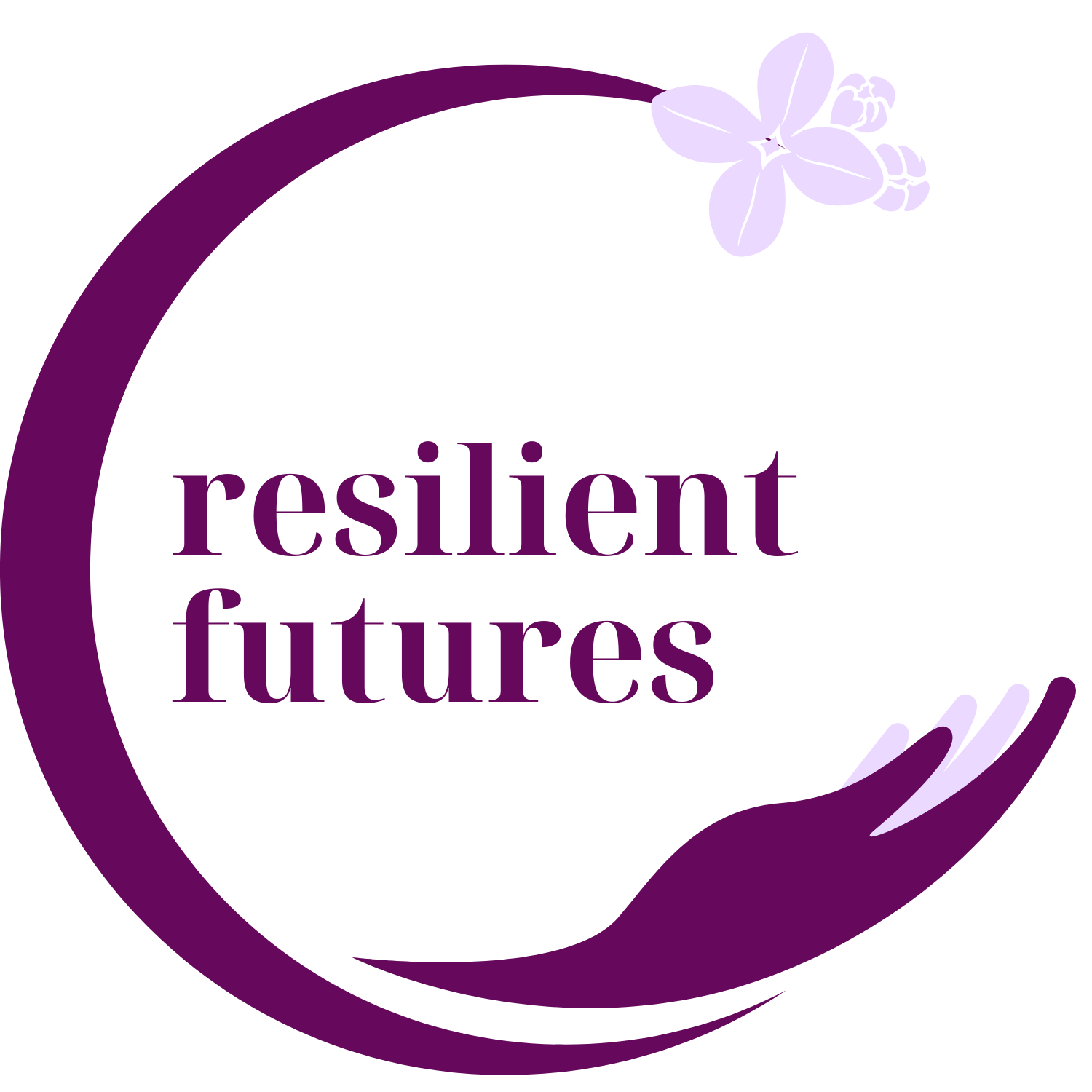
Higher Education Services
Trauma experienced during childhood and adolescence can have a significant impact on young adults, interfering with self-regulation, coping with stress, learning, and developing positive relationships. By integrating trauma-informed approaches in Higher Education, we aim to create safe, empathetic spaces where every student and adult feels valued, understood, and capable of reaching their full potential.
Higher Education All Faculty Foundational Training
Our Trauma-Informed Futures© Higher Ed All Staff Training is specifically designed for professionals working within higher education settings, encompassing all members of your university or college community, including professors, faculty, administrators, and support staff. It is an ideal training for participants new to trauma-informed practices or seeking a refresher.
-
Facilitated by Resilient Futures Executive Trainers, the training series focuses on increasing capacity and sustainability for integrating trauma-informed practices that meet the unique needs of college-aged students and all members of the academic community.
Participants will gain immediate access to knowledge and resources that can be seamlessly integrated into university or college settings, ensuring the continuity of trauma-informed services. We employ our proprietary Trauma-Informed framework to address trauma in today’s world - influenced by the evidenced-informed Healthy Environments and Response to Trauma in Schools (HEARTS) conceptual framework (Dorado et al., 2016).
Rooted in neuroscience and resilience research, trauma-informed practices are flexible, adaptable, and designed to create nurturing, supportive, and inclusive environments for young adults. Additionally, we place a strong emphasis on Adult Wellness, equipping participants with skills to address burnout and secondary trauma commonly experienced in higher education settings.
By integrating essential concepts for trauma-informed educators and leveraging our trauma-informed framework, participants will leave the training equipped with the knowledge and tools to foster safer, more supportive learning environments for all higher education students and members of the university or college community.
-
This training can be tailored to meet the diverse needs of higher education staff, and we offer adapted versions for different specialties, including teaching assistants, mental health professionals, speech and language specialists, and special education staff.
Duration: 10 hours conducted over 3 to 4 in-person sessions for optimal engagement and retention.
Higher Education Implementation Team Collaborative
Our Trauma-Informed Futures© Implementation Team Collaborative applies the principles of implementation science to empower diverse cohorts within the Higher Education sector, equipping college and university educators with the knowledge and skills essential for effectively implementing and sustaining trauma-informed practices over a multi-year partnership. This program cultivates the capacity for participants to champion resilience and equity within their Higher Education communities. Individuals are thoughtfully selected based on their unwavering commitment to upholding trauma-informed practices throughout their partnership with Resilient Futures, ensuring continuity and a comprehensive approach to implementation.
-
Program Overview:
Bringing together a diverse group of Higher Education leaders, Mental Health providers, Professors, Administrators, and representatives from various roles across the university or college community, this collaborative initiative works alongside our Resilient Futures Executive Trainers. Together, they identify existing university or college practices and policies that can be enhanced through the implementation of trauma-informed strategies.
Key Components:
Collaborative Leadership: Participants engage in collaborative decision-making, drawing upon their collective knowledge and understanding of Higher Education contextual factors to drive effective implementation and sustainability of trauma-informed practices.
Progressive Training Model: Our model progresses systematically, building upon cumulative knowledge and skills to ensure a thorough understanding of trauma-informed principles and practices. Through contextual case studies, role-playing exercises, proprietary tools, and other interactive methods, participants deepen their understanding of trauma-informed practices.
Internal Resource Establishment: As the Implementation Team advances, they become an internal resource for fellow educators, offering trauma-informed solutions to address challenges encountered in Higher Education settings. By actively embodying trauma-informed mindsets and behaviors, they cultivate empathy and understanding in interactions with all students and staff, fostering inclusivity and addressing diverse needs within the Higher Education community.
Program Evaluation Outcome Approach: Employing a mixed-method design, we utilize a program evaluation outcome approach with measurement tools to assess program effectiveness, training appropriateness, and outcomes. Evaluation findings inform ongoing optimization and adaptations to the program.
The Trauma-Informed Futures© Implementation Team is equipped to successfully implement, embed, and sustain trauma-informed practices, playing a pivotal role in supporting the entire Higher Education community.
-
While fully customizable, the Implementation Team Collaborative program spans across the school year and is typically facilitated as part of a multi-year partnership with Resilient Futures.
Higher Education Train the Trainers (TTT) Program
Our Trauma-Informed Futures© Train the Trainers Series (TTT) for Higher Education Settings is a comprehensive program designed specifically for selected members of higher education settings, empowering them to effectively facilitate our Trauma-Informed Futures© Foundational Training within their institutions.
-
Through engaging methods such as personal storytelling, reflective exercises, and group discussions, participants will gain the necessary skills to deliver our foundational training in a trauma-informed manner, tailored to the needs of college students and staff.
We provide extensive resources, including customizable lesson PowerPoints, robust learning tools, activities, case study examples, and a facilitation manual, to ensure that trainers are fully equipped to lead impactful sessions in higher education environments. Ideal candidates for this program are individuals with experience in trauma-informed practices, a commitment to professional development within their institution, and a dedication to fostering a supportive environment for college students and staff.
This training builds upon and reinforces foundational trauma-informed knowledge, grounded in the Resilient Futures framework, which is influenced by the evidenced-informed Healthy Environments and Response to Trauma in Schools (HEARTS) conceptual framework (Dorado et al., 2016). It covers essential topics such as Understanding Trauma and Stress, promoting Cultural Humility, and fostering Resilience through the 3C’s of Connection, Coping, and Competence, all adapted to the unique context of higher education.
Higher Education TTT collaboration objectives include:
• Applying the 4 R’s of trauma-informed practices in the context of higher education students.
• Recognizing and assessing behavior manifestations in college and university students and staff according to the physiological stress response continuum.
• Understanding the prevalence of trauma and its effects on learning and behavior in higher education students while challenging a deficit lens.
• Prioritizing Cultural Humility, emphasizing the importance of Cultural Humility within trauma-informed practices in higher education.
• Practicing skills to foster resilience for young children and staff based on the ARC model, focusing on building connection, coping skills, and competence within higher education settings.
• Understanding secondary trauma and burnout specific to Higher Education, and implementing practices to enhance individual and community wellness.
• Through self-reflection and practice, assessing facilitation skills to effectively deliver sensitive content and mitigate potential re-traumatization of participants in higher education environments.
Upon completion, participants are equipped to lead trauma-informed training sessions for College & University faculty and staff with confidence. They will also have the opportunity to explore their role as trainers, addressing potential challenges and emotional aspects of the content they will deliver.
-
Participants must complete the entire training to receive a certificate of completion and access to the training materials tailored for higher education contexts.
Duration:
Higher Education Transformative Leadership Training
Our Trauma-Informed Futures© Transformative Leadership Training Series empowers leaders in higher education, including colleges, universities, and graduate school programs, with an in-depth understanding of trauma-informed practices and a resolute commitment to Cultural Humility in leadership positions.
-
This intensive two-day training program is tailored for Deans, Department Heads, Academic Administrators, and individuals in supervisory roles within higher education settings who are dedicated to enhancing their leadership capabilities through trauma-informed approaches tailored to the needs of college and graduate-level students.
Throughout the training, participants will immerse themselves in the foundational principles of trauma-informed care, learning how to seamlessly integrate these principles into their daily leadership responsibilities within higher education environments. Led by our expert facilitators, engaging sessions will focus on communication strategies, relationship-building techniques, and the cultivation of a supportive organizational culture specific to the unique needs of college and graduate students.
Key highlights of the training include:
Communication: Explore effective communication strategies tailored to foster trust, empathy, and collaboration within higher education communities. Through interactive exercises and real-world scenarios, leaders will refine their skills in active listening, conflict resolution, and trauma-sensitive communication techniques adapted for adult learners.
Relationship Building: Equip leaders with practical tools and strategies for nurturing meaningful connections, promoting a sense of belonging, and fostering a culture of mutual respect, safety, and inclusivity within college and graduate school settings.
Self-Reflection and Growth: Leadership in higher education begins with self-awareness. Participants will engage in reflective practices aimed at challenging entrenched patterns of behavior and fostering personal growth. By examining their own leadership styles through a trauma-informed lens, leaders will gain insights into how they can create more equitable and supportive learning environments for college and graduate students.
Cultural Humility in Leadership Positions: Cultural Humility is a guiding principle that should inform every decision and action of a leader in higher education. Through the exploration of case studies, group discussions, and hands-on activities, participants will learn strategies for dismantling systemic barriers, addressing disparities, and promoting Cultural Humility within college and graduate school settings.
Action Planning and Implementation: Equipped with newfound knowledge and skills, participants will develop action plans tailored to the unique needs of their higher education contexts. Facilitators will offer ongoing support and guidance as leaders work to implement trauma-informed practices within their institutions, fostering an inclusive and supportive environment conducive to the growth and success of college and graduate students.
-
The training spans 16 hours across two full-day sessions or 4 half-day sessions, allowing for comprehensive exploration and practical application of concepts within the higher education landscape.
Higher Education Professional Development Deep Dives
Our Trauma-Informed Futures© Professional Development Deep Dive Series offers ongoing professional learning opportunities tailored specifically for Educators in Higher Education Settings, building upon the foundational knowledge gained from our Trauma-Informed Futures© Foundational Training. These sessions are designed to meet the unique needs of colleges, universities, and other higher education institutions.
-
Dive deep into essential topics such as Bias, Pedagogy, and Trauma-Informed Teaching practices, all tailored to the higher education context. Our sessions move beyond surface-level discussions, focusing on practical strategies and techniques relevant to working with college students and supporting faculty and staff. From creating inclusive learning environments to addressing mental health concerns, we ensure a comprehensive and progressive training experience for Educators in Higher Education Settings
-
Our Professional Development Deep Dives typically range from 2 to 8 hours per academic year, starting from the second year and beyond.
These sessions complement our All Faculty Foundational Training, providing continuous growth and development opportunities specifically curated for Educators in Higher Education Settings.
Higher Education Reflective Consultations
Reflective Consultation supports Educators in college or university settings in increasing their self-awareness, exploring their work with students and caregivers, and cultivates opportunities to engage in collective learning in groups or individually.
-
Through reflection and group discussion you'll gain strategies to deepen your understanding and connection with others to cope with the stressors of being an educator and to experience the joy of being an educator.
In Reflective Consultation (RC), we will explore your role and relationships at work and develop self-awareness to deepen your understanding and connection with others, including families/students/colleagues you work with. We will work to create a safe place for you to process, reflect, and grow. The approach is relational, reflective, and supportive.
-
This series is for individuals and groups and meets monthly - virtually or in person.


